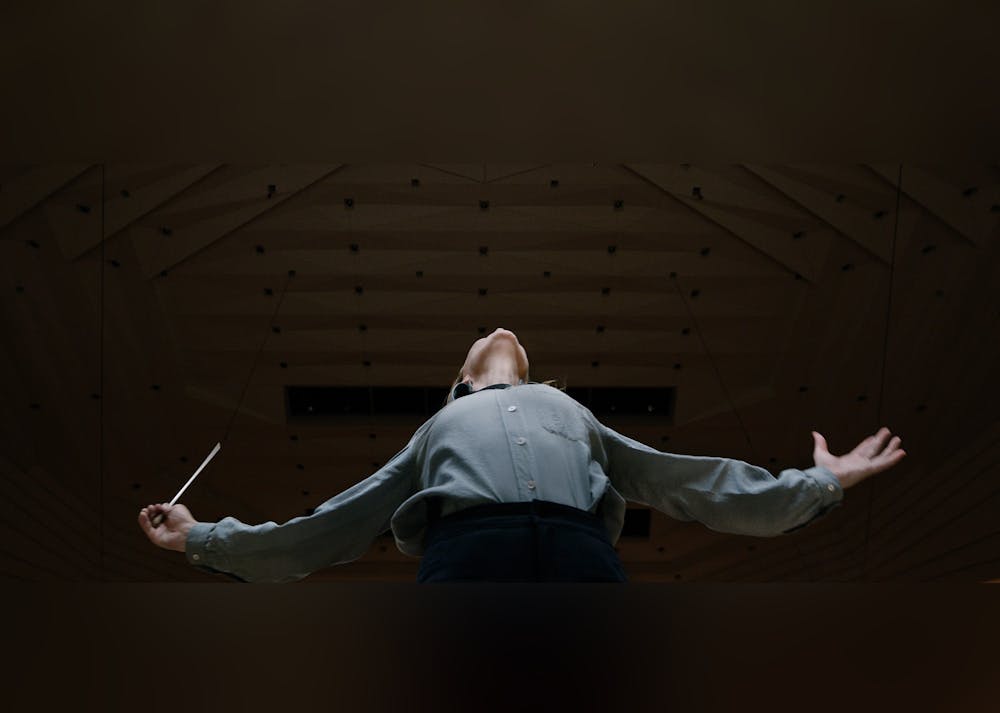Through “Tár,” a film directed by Todd Field and starring Cate Blanchett, audiences are forced to look into the eyes of someone who is misunderstood by her generation. Main character Lydia Tár is a renowned conductor who works for the Berlin Orchestra in Germany. As the storyline develops, her personal life begins to dissolve, along with her career.
Throughout the movie, I think audiences are forced to look into the eyes of someone who is misunderstood by her generation.
In one scene, Tár gives a lecture in the context of her student saying he dislikes Bach's music because he is just another straight, white, old man. She states that to be narcissistic is to be a leader to conformity, her argument being that if a man who created groundbreaking music hundreds of years ago is known by his looks and identity, you can be too.
Really, she is trying to say that “canceling” Bach is unnecessary, because if we stop listening to his music because of the few sides of him we see, we also risk having that same thing happen to us. I believe she’s trying to convey that deciding not to respect someone's legacy because of their identity means we miss out on all of the great things they did.
[Related: OPINION: Celebrities aren't superhuman]
Our generation calls this “cancel culture.” To “cancel” someone is to see them doing something wrong — or sometimes embarrassing or cringey — and judge them harshly for it.
Tár is living in this day and age, and her ways of teaching and conducting are considered by some too rigid or too discordant. Overall, her passion is the one thing that drives her life forward.
Nowadays, I think a character like that is more at risk of being criticized for how they follow their passion. Socially, we are given certain expectations to follow, such as how to act or dress. If someone is to go outside of these expectations, they risk being shunned or ostracized.
Another big factor in cancel culture is someone being judged for one video taken of them. Sometimes videos are even edited to make them look worse.
An example of this is seen in Tár when an unknown person posts an edited video of Tár seemingly abusing her power over her students. In the video, she is portrayed as a monster.
Somehow, someone took a video of her giving the lecture, and it ended up destroying her career. As I watched this movie, I found it scary that someone may have no ability to control how much privacy they truly have, even in their field of work. And in Tár’s case, it is a field of work she is really passionate about.
With screens becoming more and more prominent within our lives, we are all limited to what we see about someone. With phones having the ability to capture one moment without context, our character can be manipulated into being something it’s not. Overall, it’s as though these screens in front of us create walls where we only see the outside of who we are and not what goes on inside of our heads.
[Related: OPINION: There’s more to movies than Marvel]
As Tár spirals, her own mind plays tricks against her and so does the rest of her world. In the end, she leaves Berlin and restarts her conducting career in Asia. I found it crazy how someone's life could change so drastically because they are surrounded by the criticism of the public.
What’s even more interesting is that this is the culture that my generation is growing up with. How we react to certain things online is a built in habit for us now, and I’m not sure if we — including myself — know how to manage it.
As cancel culture continues, and I find myself getting frustrated at certain celebrities saying ignorant things, I focus on the fact that they’re human too. If a mistake is caught on camera, and it is truly deemed a simple mistake, our generation may need to learn how to let go of grudges as well. I still haves a grudge against Kanye West interrupting Taylor Swift’s acceptance speech, though, and that was 14 years ago. That grudge feels OK to keep, though.
“Tár” is a cinematic masterpiece, nominated for six Oscars this year. In the end, I struggled to know whether or not Tár was guilty for the allegations she faced, even though she was purposefully framed by the viral video posted. This same debate can be held by celebrities of our day and age who have also been framed in some way, or to the extent where we only judge them based off of one video of them posted online.
Carolyn Marshall (she/her) is a sophomore studying media studies with a focus in film, TV and digital production and minoring in English.






